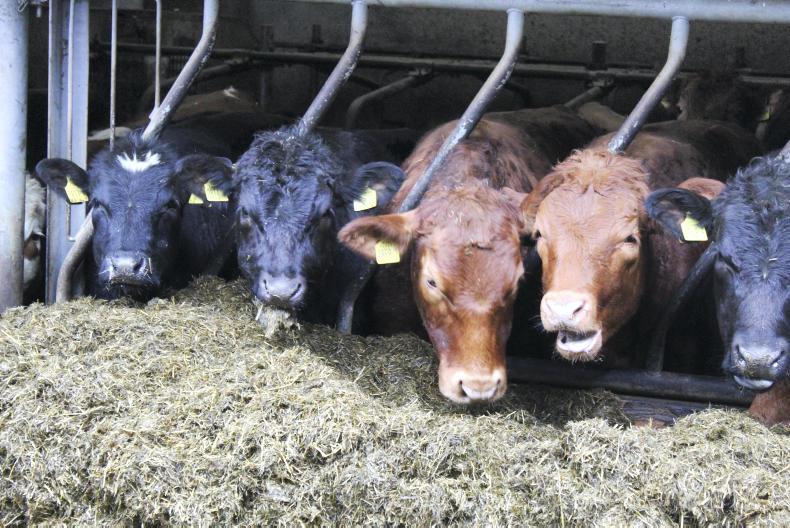As coronavirus continues to spread across the country, it is imperative that farmers follow all of the advice of qualified health experts to reduce the risk of contracting the virus.
Everyone has a part to play in curtailing the spread of coronavirus and we should take this responsibility seriously. While you should always follow the advise or experts, outlined are an another five ways to keep safe from the virus on farm.
1 Regular washing of hands with hot water and soap
You may well have heard this message repeatedly on TV or radio, but the message is being constantly repeated because it is such an effective step to prevent the spread of the virus.
Do not ignore the efficacy of such a simple step. Regular washing of hands with hot water and soap is essential.
Don’t just stick your hand under the tap for a few seconds. Wash your hands for a minimum of 20 seconds, constantly scrubbing them.
Always wash hands before and after you enter the house, especially if there are vulnerable family members present. If you are at the mart, wash your hands before leaving the premises.
Keep a bottle of hand sanitiser in the farm vehicle to clean your hands when out and about.
2 Sneeze and cough into a tissue
Use a tissue to catch a cough or sneeze. If you don’t have a tissue, cough into your sleeve or the elbow joint of your arm. Discard tissues and wash hands as soon as possible.
3 Restrict farm access from visitors
Keep the farm gates closed for the next few weeks to restrict visitors calling to the yard unannounced. The same applies to the farmhouse.
The fewer people you come in contact with over the next few weeks, the lower the risk of the virus being transmitted.
4 Avoid unnecessary gatherings, such as the mart
Avoid large gatherings in the short term, for example mart sales, particularly if your only purpose for going to a sale is for the social side.
If you have cattle to sell, then you have to be there. With marts limiting numbers to 100, leave priority places for buyers.
If you do go to such events, try to keep your distance from people. Don’t congregate around the ring when there is space on the steps to stand. Change and wash your clothes when you get home, as well as washing your hands.
5 Stay away from the delivery/collection drivers
Avoid contact with lorry drivers delivering meal, fertiliser or diesel. In the same way, if a lorry driver is collecting cattle or sheep to transport to the factory, or mart, then minimise contact as far as possible.
Read more
Farmers on coronavirus: ‘It’s getting very serious now’
Coronavirus wipes almost €5bn off the value of Irish agri-food companies
As coronavirus continues to spread across the country, it is imperative that farmers follow all of the advice of qualified health experts to reduce the risk of contracting the virus.
Everyone has a part to play in curtailing the spread of coronavirus and we should take this responsibility seriously. While you should always follow the advise or experts, outlined are an another five ways to keep safe from the virus on farm.
1 Regular washing of hands with hot water and soap
You may well have heard this message repeatedly on TV or radio, but the message is being constantly repeated because it is such an effective step to prevent the spread of the virus.
Do not ignore the efficacy of such a simple step. Regular washing of hands with hot water and soap is essential.
Don’t just stick your hand under the tap for a few seconds. Wash your hands for a minimum of 20 seconds, constantly scrubbing them.
Always wash hands before and after you enter the house, especially if there are vulnerable family members present. If you are at the mart, wash your hands before leaving the premises.
Keep a bottle of hand sanitiser in the farm vehicle to clean your hands when out and about.
2 Sneeze and cough into a tissue
Use a tissue to catch a cough or sneeze. If you don’t have a tissue, cough into your sleeve or the elbow joint of your arm. Discard tissues and wash hands as soon as possible.
3 Restrict farm access from visitors
Keep the farm gates closed for the next few weeks to restrict visitors calling to the yard unannounced. The same applies to the farmhouse.
The fewer people you come in contact with over the next few weeks, the lower the risk of the virus being transmitted.
4 Avoid unnecessary gatherings, such as the mart
Avoid large gatherings in the short term, for example mart sales, particularly if your only purpose for going to a sale is for the social side.
If you have cattle to sell, then you have to be there. With marts limiting numbers to 100, leave priority places for buyers.
If you do go to such events, try to keep your distance from people. Don’t congregate around the ring when there is space on the steps to stand. Change and wash your clothes when you get home, as well as washing your hands.
5 Stay away from the delivery/collection drivers
Avoid contact with lorry drivers delivering meal, fertiliser or diesel. In the same way, if a lorry driver is collecting cattle or sheep to transport to the factory, or mart, then minimise contact as far as possible.
Read more
Farmers on coronavirus: ‘It’s getting very serious now’
Coronavirus wipes almost €5bn off the value of Irish agri-food companies






 This is a subscriber-only article
This is a subscriber-only article










SHARING OPTIONS: